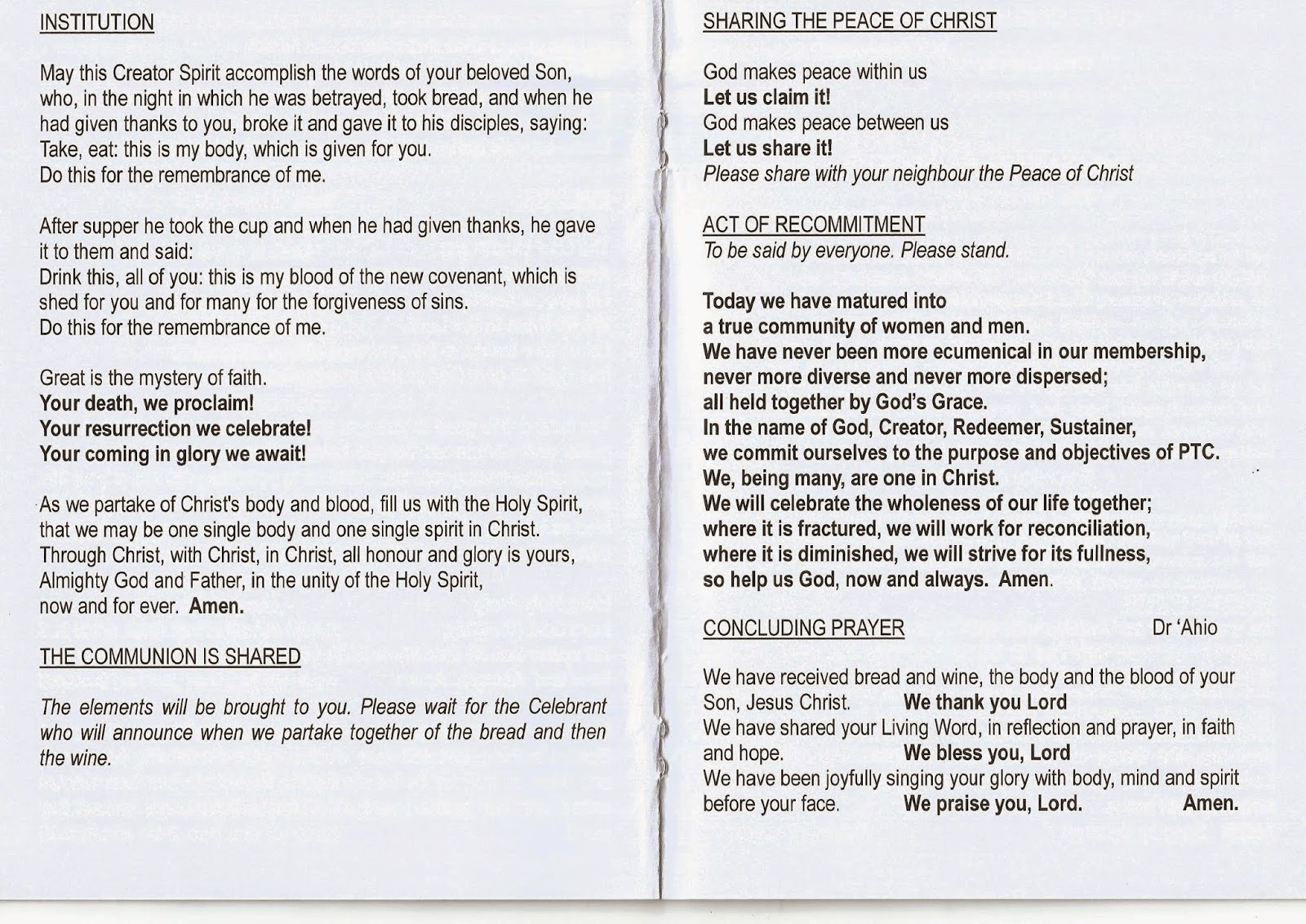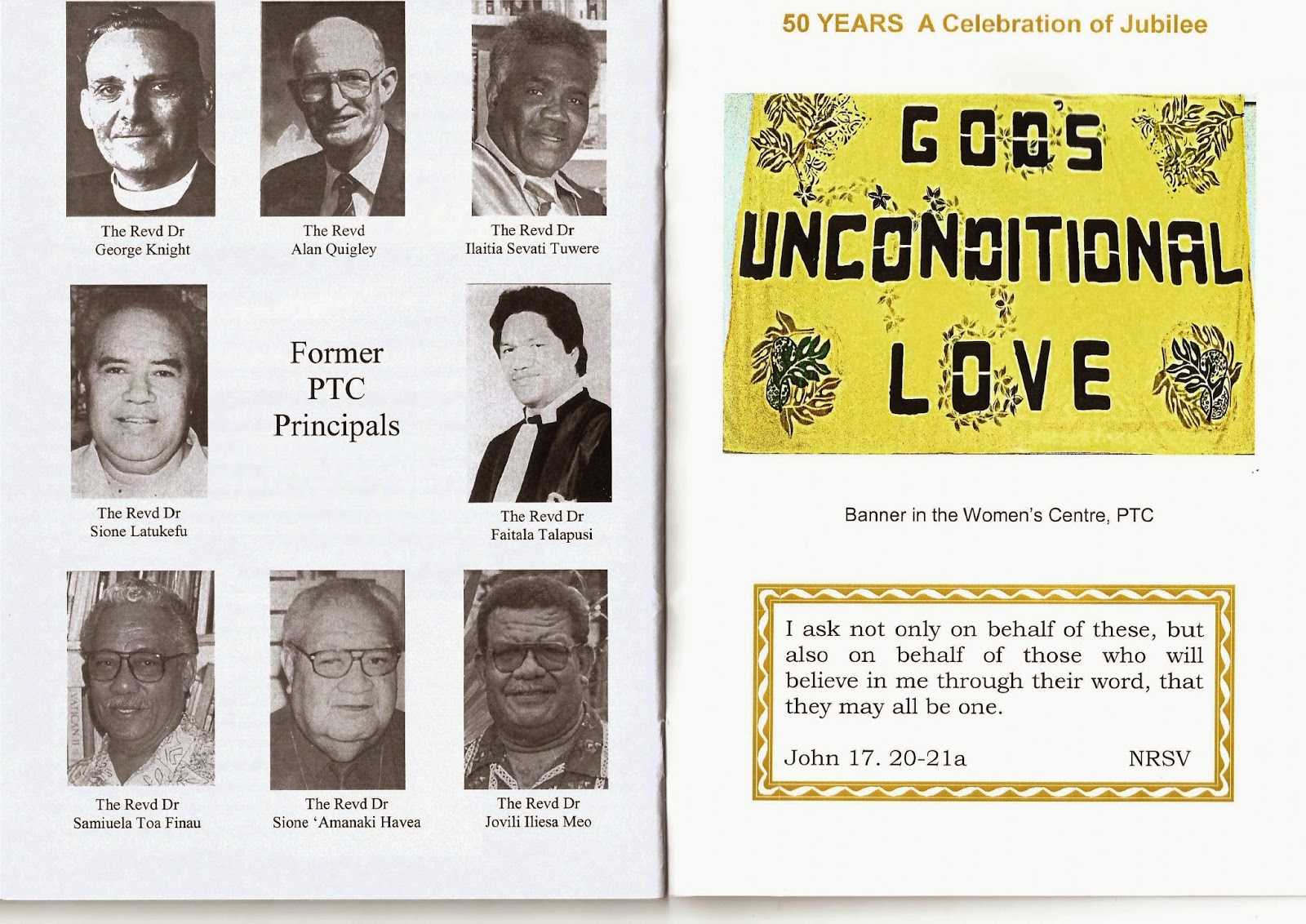We started on the steps of the Flea Market on Palm Sunday. And why not? Wesley City Mission had booked the stage and space at Sukuna Park this year for open air worship so we processed there - about 10 mins walk - with much waving and singing, as you can imagine. Worship in the park, which is town centre by the sea front, was a great witness, and some extra holiday 'entertainment' too for day trippers off one of the cruise ships in port for the day.
Also it's 'Children's Sunday' in the Methodist Church of Fiji and Rotuma, so the worship was led almost entirely by children and young people. See below the Sunday School choir just before the service started. Skin colour, climate and geographical location differ of course, but I couldn't help but see British Methodist family photos of Sunday School anniversaries in the 1940s and 50s in my mind's eye. My Manchester Sunday School in the 1960s certainly dressed us in white and had us parading at Whitsuntide. And here we are in Fiji in 2015.
During worship - I was one of the gathered throng, not up front - it was great to sit with the Revd Magdalena M. Kafiar from GKN Tanah Papua - the Christian Evangelical Church in the land of Papua. Here's a bit about her Church.
Magdalena is at our Pacific Theological College for a three month programme called English for Ecumenical Cooperation, but I hadn't had chance to speak to her apart from briefly one break time. Some of her work among indigenous communities is inspirational and can be read about here with a short extract below.
Papua, a province of Indonesia, comprises most of the western
half of the island of New Guinea and nearby islands. The region is
administered as two provinces: Papua and West Papua. The eastern
half of New Guinea is Papua New Guinea. The population of
approximately 3.6 million comprises ethnic Papuans, Melanesians,
and Austronesians. The region is predominantly dense forest
where numerous traditional tribes live such as the Dani of the
Baliem Valley, although the majority of the population lives in
or near coastal areas. Although the official and most commonly
spoken language is Bahasa Indonesian, estimates of the number
of tribal languages in the region range from 200 to over 700,
with the most widely spoken including Dani, Yali, Ekari and Biak.
The predominant religion is Christianity (often combined with
traditional beliefs) followed by Islam, while the main industries
include agriculture, fishing, oil production, and mining. One of
the world’s biggest deposits of copper and gold ore is located at
Tembagapura, in the west-central part of the province.
Magdalena Kafiar explains that her organization “conducts focused
group discussions about women’s participation and women’s role.”
She notes that usually a woman’s role in her community is “to get
married, have a child, and serve the husband, and so on.”
“We have traditional gatherings. Women prepare food for the men’s
meeting; women serve the men, but they are not involved in the
decision-making. The women can only serve.” Arranged marriages
are part of the tradition. If a man wants to marry a woman, he
must bring a woman from his family to marry into the family of
the woman. In some cases, young girls are forced into marrying
much older men.
Papua has one of the highest illiteracy rates in Indonesia. Magdalena
says, “Most of the people, especially women, are illiterate so we teach
them how to write.”
There are 26,000 hectares occupied by private companies in Papua.
“The people eventually became laborers in their own land, especially
women and children. The children no longer go to school; they work
in the plantations instead. There is widespread logging in our area.”
Magdalena adds that technically the logging is legal since the big
private companies have been granted permits by the state without
prior community consent. The expansion of mining has also
affected the region, with complaints against mining companies for
violations of human and environmental rights on the rise.
Yet again I was moved by how profoundly the liturgical cycle of the Christian year speaks to the real-life settings of God's people. The traditional cries of 'Hosanna!' on Palm Sunday are firmly rooted in Hebrew and Greek terms meaning, 'rescue', 'save' and saviour'. I was privileged to have as a worship companion on this Palm Sunday, a woman who is playing her part significantly in the liberation and salvation of her people.








































